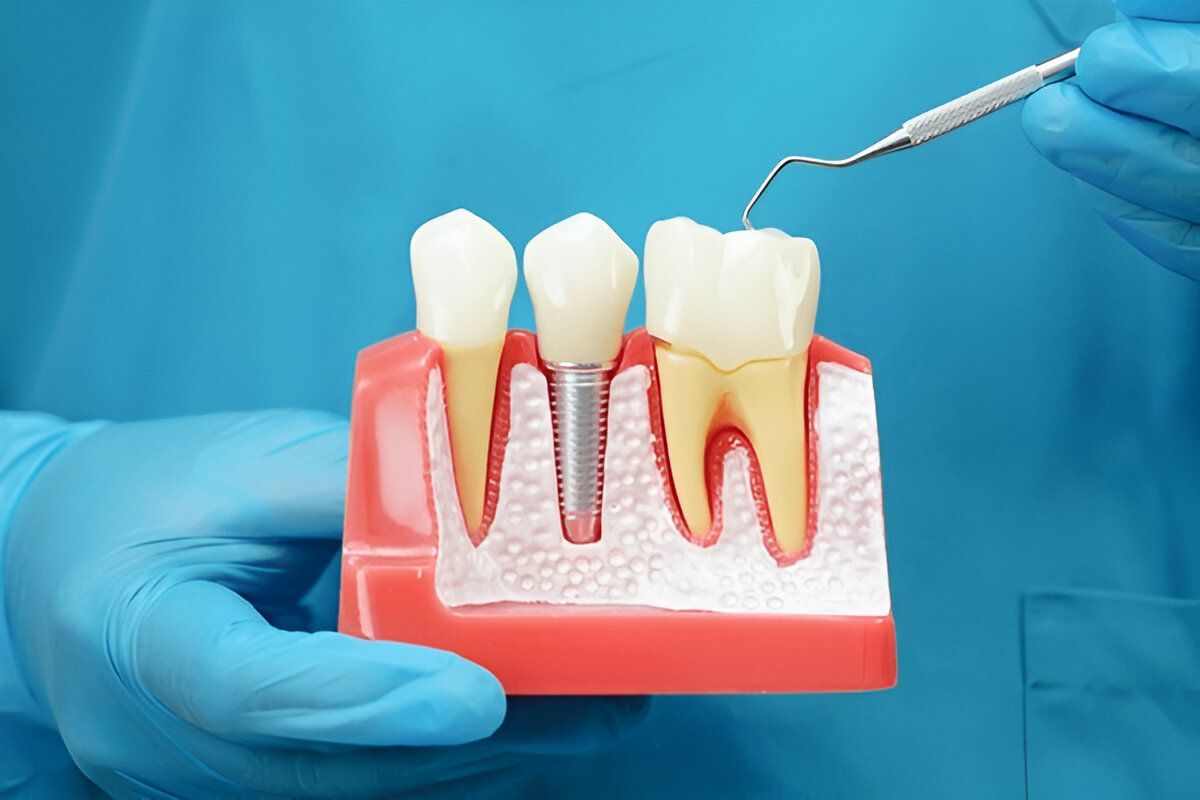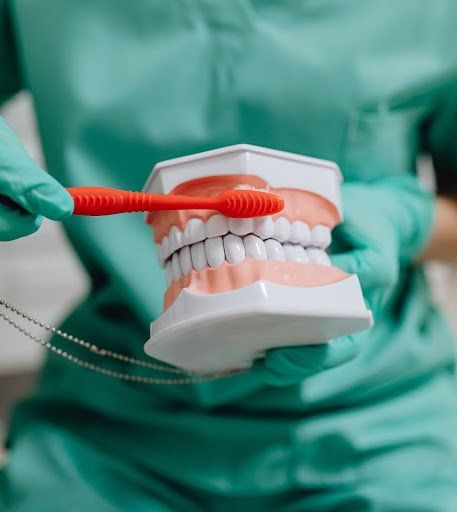Did Your Toothache Just Get Serious? Know When to Get a Root Canal

Understanding Toothaches and Their Implications
Toothaches are a common dental issue that many of us experience at some point. They can range from a mild discomfort to severe pain, often disrupting daily activities and quality of life. While a toothache might seem like just an annoying inconvenience, it can be a signal of deeper, more serious problems.
Toothaches can indicate serious underlying issues , such as:
- Tooth decay : Cavities can expose the sensitive inner layers of the tooth.
- Infections : Bacteria can invade the pulp, leading to abscesses.
- Fractures or trauma : Cracks in the tooth can expose nerves.
One significant concern is when a toothache is persistent or severe. This could mean that the tooth's pulp—the soft tissue inside—has been damaged or infected. In these cases, a root canal treatment may be necessary to save the tooth and alleviate pain.
However, before reaching that stage, there are several natural home remedies for toothache that one could try for temporary relief.
Prompt dental care is crucial when dealing with severe or continuing tooth pain. Ignoring it can lead to complications such as:
- Increased infection risk
- Tooth loss
- Spread of infection to other parts of the body
If you ever find yourself thinking, "My tooth hurts!", it's important to seek professional help immediately. This proactive approach not only addresses the immediate discomfort but also prevents potential complications down the line.
In some cases, severe toothaches may lead to the consideration of dental implants if tooth loss occurs. It's also worth noting that certain oral health problems are more common in growing children , which could also manifest as toothaches.
Additionally, understanding the causes of dental plaque and how to prevent them can play a significant role in maintaining oral health and preventing future toothaches. Lastly, if you're advised by your dentist to undergo deep teeth cleaning , it's crucial to understand its importance in preventing such dental issues.
What is a Root Canal Treatment?
A root canal treatment, often referred to as root canal therapy or endodontics , plays a crucial role in preserving the health of a damaged or infected tooth. When the inner part of the tooth, known as the pulp, becomes inflamed or infected due to deep decay, repeated dental procedures, or a crack/chip in the tooth, a root canal treatment can save it from extraction. This procedure not only alleviates pain but also restores the tooth's function.
Purpose of Root Canal Treatment
The primary goals of dental root canal treatment are:
- Preservation: Salvaging your natural tooth by removing infected tissue and preventing further damage.
- Pain Relief: Alleviating severe tooth pain by addressing the source of infection or inflammation.
- Preventing Complications: Avoiding serious oral health problems such as abscesses and bone loss that can occur if an infected tooth is left untreated.
Step-by-Step Procedure
Understanding what happens during a typical tooth root canal session can help ease any anxieties you might have about the process:
- Examination and X-Rays: Your root canal specialist will start by examining your tooth and taking X-rays to assess the extent of damage and locate the infection.
- Anesthesia: To ensure comfort, local anesthesia is administered to numb the affected area.
- Access Opening: A small opening is made in the crown of the tooth to reach the pulp chamber.
- Pulp Removal: The infected or damaged pulp is carefully removed using specialized instruments.
- Cleaning and Shaping: The inside of the canals is thoroughly cleaned and shaped to prepare for filling.
- Filling: The cleaned canals are filled with a biocompatible material called gutta-percha. This step seals off the space to prevent future infections.
- Temporary Seal: A temporary filling is placed on top until a permanent crown can be fitted.
Throughout this process, advanced technologies such as dental microscopes and 3D imaging enhance precision and success rates.
By opting for endodontic treatment, you preserve your natural smile while maintaining normal biting force and sensation. Root canal therapy offers an effective solution for treating deep-seated infections within your teeth, ensuring long-term oral health.
Understanding Calcified Root Canals
Calcified root canals may present complexities during treatment but are not insurmountable challenges.
Additionally, post-treatment oral hygiene practices are vital for sustaining positive outcomes. Regular dental check-ups play an instrumental role in monitoring your oral health status and identifying potential concerns early on.
In instances where substantial tooth structure has been compromised due to decay or trauma, supplementary restorative interventions might be necessary following a root canal procedure—these could encompass cosmetic dentistry solutions like crowns or veneers.
For parents seeking dental care options for their children, it's essential to acknowledge the significance of pediatric dentistry in overseeing children's oral health from infancy through adolescence.
The Good News About Calcified Root Canals
Symptoms and Diagnosis of Calcified Root Canals
Calcified root canals can be a sneaky dental issue. Often, they develop due to factors such as tooth trauma, prior dental treatments, deep decay, or simply aging. These calcium deposits form inside the tooth canal, making treatment more challenging. Recognizing the symptoms early can significantly improve your chances of successful treatment.
Common symptoms of calcified root canals include:
- Persistent tooth pain that doesn't go away with over-the-counter painkillers. For tips on managing a nagging toothache , check out this resource.
- Sensitivity to hot or cold temperatures that lingers after the stimulus is removed.
- Swollen or tender gums around the affected tooth.
- Discoloration or darkening of the tooth, which is a common issue that can be explored further in this article about tooth discoloration.
- A small bump on the gums near the affected area, which could indicate an abscess.
Ignoring these symptoms can lead to severe complications, including infections that could spread beyond the mouth. Regular dental examinations are crucial for detecting these issues before they escalate.
Dental specialists, particularly endodontists, play a critical role in accurately diagnosing calcified root canals. Endodontists have advanced training in identifying and treating conditions affecting the tooth pulp and surrounding tissues. They use state-of-the-art dental imaging techniques to get a clear view of what's happening inside your teeth.
Diagnostic tools used by endodontists include:
- Dental Microscopes: These allow endodontists to see inside the tiny spaces within your teeth with greater precision.
- 3D Imaging: Advanced imaging techniques like cone-beam computed tomography (CBCT) provide detailed cross-sectional images of your teeth and surrounding bone structure.
- Digital Radiography: This modern x-ray technology offers high-resolution images with reduced radiation exposure compared to traditional x-rays.
These technologies help in understanding calcified root canals more comprehensively. By providing a clear picture of the internal structure of your teeth, endodontists can plan effective treatment strategies tailored to each patient's unique needs.
The Good News About Your Calcified Root Canal Treatment
Advancements in dental techniques have made treating calcified root canals more successful than ever before. Endodontists now have access to specialized equipment and methods designed specifically for these challenging cases. For instance:
- Ultrasonic Instruments: These tools help remove calcifications more effectively without damaging healthy tooth structure.
- Enhanced Lighting: High-intensity LED lights improve visibility inside the tooth canal during procedures.
- Flexible Nickel-Titanium Files: These instruments navigate curved and narrow canals more efficiently than traditional stainless steel files.
Understanding calcified root canals and their implications doesn't have to be daunting. With prompt diagnosis and advanced treatment options available, you can preserve your natural teeth and maintain your oral health effectively. Remember to avoid common oral hygiene mistakes for better dental health outcomes.
Treatment Options for Calcified Root Canals
Understanding calcified root canals as a challenging condition is crucial. This condition can occur due to factors like tooth trauma, deep decay, or even the natural aging process. Early detection through regular dental exams significantly improves treatment outcomes.
When it comes to treating calcified root canals, endodontists employ a variety of advanced techniques and tools. Here are some key methods:
- Dental Microscopes: These high-powered microscopes allow endodontists to visualize intricate details inside the tooth canal. The increased magnification helps in precisely locating and removing calcifications.
- 3D Imaging: Techniques such as Cone Beam Computed Tomography (CBCT) provide detailed 3D images of the tooth structure. This technology is invaluable in understanding the complex anatomy of calcified canals, leading to more accurate diagnoses and effective treatments.
- Ultrasonic Instruments: Ultrasonics are used to gently break down and remove calcifications within the canals. These instruments vibrate at high frequencies, facilitating the removal of blockages without causing damage to surrounding structures.
- Specialized Endodontic Files: These flexible files are designed to navigate through narrow and curved canals, which are often characteristics of calcified root canals. They help in cleaning and shaping the canal effectively.
Each technique plays a vital role in addressing the complexities associated with calcified root canals. Advanced technologies make it possible to treat these conditions successfully, ensuring that patients retain their natural teeth whenever possible.
The good news about your calcified root canal treatment is that with skilled endodontists and state-of-the-art equipment, what once seemed like an insurmountable problem now has viable solutions. Regular dental examinations remain essential for early detection and successful treatment of this challenging condition. It's also important to note that maintaining good oral health can help prevent conditions such as gum disease, which could complicate dental procedures like root canal treatments. For more information on types of gum diseases and how to treat them , it's advisable to consult with a dental professional.
Finding a Qualified Endodontist for Your Root Canal Treatment
When it comes to finding a qualified endodontist , several factors play a crucial role in ensuring you receive the best possible care. Here are some key considerations:
- Experience and Credentials : Look for an endodontist with extensive experience and proper credentials. They should be board-certified and have completed specialized training in endodontics.
- Technology and Techniques: Advanced technology can significantly improve treatment outcomes. Ensure your endodontist uses modern tools such as dental microscopes, 3D imaging, and other cutting-edge equipment.
- Patient Reviews and Testimonials: Reading reviews from previous patients can provide insight into the endodontist's skill level, bedside manner, and overall patient satisfaction.
- Consultation Availability: A good endodontist will take the time to discuss your condition, explain the procedure, and answer any questions you might have. An initial consultation can help you gauge their communication style and approach to patient care.
- Comfort and Compassion: Dental procedures can be stressful. Finding an endodontist who is compassionate and makes you feel comfortable is essential for a positive experience.
Seeking out these qualities in an endodontist will set you on the path to effective, personalized care throughout your root canal journey.
While you're focusing on finding the right endodontist, it's also important to consider how to take care of your teeth post-procedure. If you're considering treatments like Invisalign after your root canal, understanding how to take care of your Invisalign will be beneficial for maintaining oral health during that period.
Preventive Measures to Maintain Tooth Health After Root Canal Treatment
Maintaining oral health after a root canal treatment is crucial to ensure the longevity and success of the procedure. Here are some essential tips:
Good Oral Hygiene Habits
- Brush and Floss Regularly : Maintain a routine of brushing twice a day and flossing daily . This helps remove plaque and prevent further decay.
- Use an Antibacterial Mouthwash: Rinsing with an antibacterial mouthwash can reduce harmful bacteria in your mouth, promoting overall oral health.
- Choose the Right Toothbrush: Opt for a soft-bristled toothbrush to avoid damaging your gums and tooth enamel.
Lifestyle Choices for Long-Term Success
- Avoid Excessive Teeth Clenching : Stress and habits like teeth grinding or clenching can put undue pressure on your treated tooth. Consider using a mouthguard at night if you grind your teeth.
- Limit Sugary Foods and Drinks: High sugar intake contributes to tooth decay. Opt for healthier choices like fresh fruits, vegetables, and nuts. Be mindful of daily habits that spoil your teeth.
- Stay Hydrated: Drinking water throughout the day helps wash away food particles and keeps your mouth moist, reducing the risk of bacterial growth.
Regular Dental Check-Ups
Regular dental visits are essential for monitoring your oral health. Your dentist can detect early signs of potential issues and provide timely interventions, ensuring the continued success of your root canal treatment.
The good news about your calcified root canal treatment is that with proper care, you can maintain a healthy smile for years to come.
By integrating these practices into your daily routine, you actively contribute to the durability of your dental work and overall oral health maintenance. Additionally, following simple yet practical dentist tips for healthy gums can further enhance your gum health during this recovery period.
Conclusion: Taking Charge of Your Dental Health Journey
Dealing with a toothache can be scary, but the good news is that advanced dental technologies have made procedures like calcified root canal treatments more effective and comfortable. Always seek professional help when experiencing severe tooth pain. Regular dental visits are essential for preventive care, ensuring you catch issues early before they become serious.
Taking charge of your dental health means being proactive and informed every step of the way. This includes understanding the top 5 best and worst foods for your dental health , which can significantly impact your overall oral health.
Additionally, if you're considering options like dental implants as a solution for missing teeth, it's crucial to know how to look after them properly for long-term success.
Lastly, if you're looking to enhance your smile further, exploring options like teeth whitening could be beneficial. Remember, your dental health journey is in your hands, so make informed choices and seek professional guidance when necessary.
FAQs -
What are the common symptoms that indicate I may need a root canal?
Common symptoms that suggest you may need a root canal include severe toothache, prolonged sensitivity to hot or cold, discoloration of the tooth, swelling and tenderness in nearby gums, and recurring pimple on the gums.
What is the purpose of a root canal treatment?
The primary goals of dental root canal treatment are to preserve the natural tooth by removing infected or damaged pulp, alleviate pain, and prevent the spread of infection to surrounding teeth and tissues.
What happens during a typical root canal procedure?
During a typical root canal procedure, the dentist will numb the area around the affected tooth, create an opening in the crown of the tooth, remove the infected pulp tissue, clean and shape the root canals, and then seal them. A crown may be placed afterward to restore function.
What are calcified root canals and why are they challenging?
Calcified root canals occur when the canals become narrowed or blocked due to hardening of tissues. This can complicate treatment as it makes it difficult for dentists to access and clean the canals effectively.
How can I maintain my oral health after a root canal treatment?
To maintain oral health after a root canal treatment, practice good oral hygiene by brushing twice daily and flossing regularly. Additionally, avoid excessive teeth clenching and schedule regular dental check-ups to monitor your dental health.
How do I find a qualified endodontist for my root canal treatment?
To find a qualified endodontist for your root canal treatment, consider factors such as their qualifications, experience with similar cases, patient reviews, and whether they use advanced technology in their procedures. Consult your general dentist for recommendations as well.










